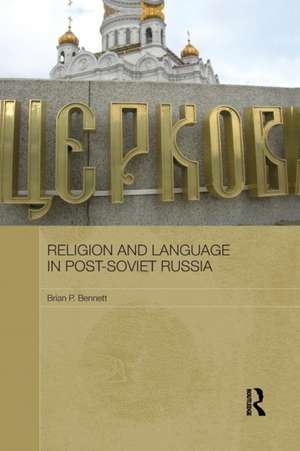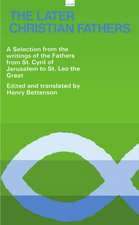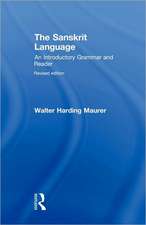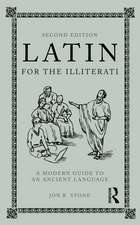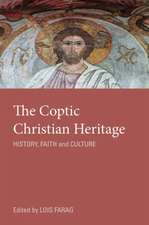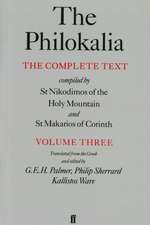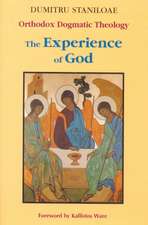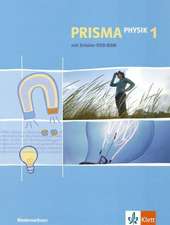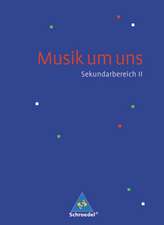Religion and Language in Post-Soviet Russia: Routledge Contemporary Russia and Eastern Europe Series
Autor Brian P. Bennetten Limba Engleză Paperback – 3 mar 2016
| Toate formatele și edițiile | Preț | Express |
|---|---|---|
| Paperback (1) | 469.34 lei 6-8 săpt. | |
| Taylor & Francis – 3 mar 2016 | 469.34 lei 6-8 săpt. | |
| Hardback (1) | 1220.77 lei 6-8 săpt. | |
| Taylor & Francis – 28 apr 2011 | 1220.77 lei 6-8 săpt. |
Din seria Routledge Contemporary Russia and Eastern Europe Series
-
 Preț: 309.79 lei
Preț: 309.79 lei -
 Preț: 326.49 lei
Preț: 326.49 lei -
 Preț: 326.15 lei
Preț: 326.15 lei - 9%
 Preț: 1010.69 lei
Preț: 1010.69 lei -
 Preț: 321.03 lei
Preț: 321.03 lei -
 Preț: 302.32 lei
Preț: 302.32 lei -
 Preț: 325.21 lei
Preț: 325.21 lei - 9%
 Preț: 934.69 lei
Preț: 934.69 lei -
 Preț: 318.10 lei
Preț: 318.10 lei -
 Preț: 379.30 lei
Preț: 379.30 lei - 18%
 Preț: 1111.51 lei
Preț: 1111.51 lei - 18%
 Preț: 1058.79 lei
Preț: 1058.79 lei - 25%
 Preț: 824.70 lei
Preț: 824.70 lei -
 Preț: 464.54 lei
Preț: 464.54 lei - 18%
 Preț: 950.71 lei
Preț: 950.71 lei - 18%
 Preț: 1168.76 lei
Preț: 1168.76 lei - 16%
 Preț: 130.54 lei
Preț: 130.54 lei - 26%
 Preț: 821.46 lei
Preț: 821.46 lei - 18%
 Preț: 1169.78 lei
Preț: 1169.78 lei -
 Preț: 413.98 lei
Preț: 413.98 lei -
 Preț: 387.49 lei
Preț: 387.49 lei -
 Preț: 396.90 lei
Preț: 396.90 lei - 18%
 Preț: 1059.93 lei
Preț: 1059.93 lei - 18%
 Preț: 1220.77 lei
Preț: 1220.77 lei -
 Preț: 418.13 lei
Preț: 418.13 lei - 18%
 Preț: 1171.89 lei
Preț: 1171.89 lei - 18%
 Preț: 1057.57 lei
Preț: 1057.57 lei -
 Preț: 413.37 lei
Preț: 413.37 lei - 18%
 Preț: 707.96 lei
Preț: 707.96 lei - 18%
 Preț: 1058.65 lei
Preț: 1058.65 lei - 18%
 Preț: 948.84 lei
Preț: 948.84 lei - 18%
 Preț: 706.91 lei
Preț: 706.91 lei - 18%
 Preț: 1059.84 lei
Preț: 1059.84 lei -
 Preț: 488.33 lei
Preț: 488.33 lei - 18%
 Preț: 1056.28 lei
Preț: 1056.28 lei -
 Preț: 390.12 lei
Preț: 390.12 lei - 18%
 Preț: 1053.16 lei
Preț: 1053.16 lei - 18%
 Preț: 1056.28 lei
Preț: 1056.28 lei - 28%
 Preț: 850.91 lei
Preț: 850.91 lei - 18%
 Preț: 1050.78 lei
Preț: 1050.78 lei - 18%
 Preț: 1166.68 lei
Preț: 1166.68 lei - 18%
 Preț: 1058.79 lei
Preț: 1058.79 lei - 18%
 Preț: 1958.23 lei
Preț: 1958.23 lei - 18%
 Preț: 1221.74 lei
Preț: 1221.74 lei
Preț: 469.34 lei
Nou
Puncte Express: 704
Preț estimativ în valută:
89.81€ • 94.02$ • 74.31£
89.81€ • 94.02$ • 74.31£
Carte tipărită la comandă
Livrare economică 05-19 aprilie
Preluare comenzi: 021 569.72.76
Specificații
ISBN-13: 9781138657267
ISBN-10: 1138657263
Pagini: 228
Ilustrații: 20
Dimensiuni: 156 x 234 x 11 mm
Greutate: 0.45 kg
Ediția:1
Editura: Taylor & Francis
Colecția Routledge
Seria Routledge Contemporary Russia and Eastern Europe Series
Locul publicării:Oxford, United Kingdom
ISBN-10: 1138657263
Pagini: 228
Ilustrații: 20
Dimensiuni: 156 x 234 x 11 mm
Greutate: 0.45 kg
Ediția:1
Editura: Taylor & Francis
Colecția Routledge
Seria Routledge Contemporary Russia and Eastern Europe Series
Locul publicării:Oxford, United Kingdom
Public țintă
PostgraduateCuprins
1. Introduction 2. Religion, language, religious language 3. Az, buki, vedi: the ABC’s of religious literacy 4. Translator, traitor? the debate over liturgical language 5. Logos: Slavonic letterforms and the graphic environment 6. From Marx and Lenin to Cyril and Methodius 7. Scripting Russian history: alphabet mysticism and conspiracy theory
Recenzii
"One of the many virtues of Brian Bennet’s book is that he views the many changes in Russian society through a rather neglected perspective: the prism of language... The book is an interesting and well written contribution to the literature on religious (and socio-linguistic) developments in present-day Russia." -- Annika Hvithamar, University of Southern Denmark, 2012.
"Brian Bennett’s sound academic research is copious and abounds in expressive empirical details... A well-balanced and thoroughly documented style, pinpointing a tremendously rich and revealing aspect of a culture in flux and drawing attention to the linguistic dilemmas behind the society’s quest for identity."- Alexander Agadjanian; Slavic Review, Vol. 71, No. 4 (WINTER 2012).
"Brian Bennett offers a compelling, in-depth study that reminds us that the very language that serves as one of the defining visual features of the institution has experienced a long and contentious history of politicization... ln all. Religion and Language in Post-Soviet Russia offers an outstandingly researched examination ofthe contemporary cultural history of Church language, thoroughly grounded in the history of both the Church and the language." Michael S. Gorham, University of Florida; Slavic and East European Journal 2013.
"Brian Bennett’s sound academic research is copious and abounds in expressive empirical details... A well-balanced and thoroughly documented style, pinpointing a tremendously rich and revealing aspect of a culture in flux and drawing attention to the linguistic dilemmas behind the society’s quest for identity."- Alexander Agadjanian; Slavic Review, Vol. 71, No. 4 (WINTER 2012).
"Brian Bennett offers a compelling, in-depth study that reminds us that the very language that serves as one of the defining visual features of the institution has experienced a long and contentious history of politicization... ln all. Religion and Language in Post-Soviet Russia offers an outstandingly researched examination ofthe contemporary cultural history of Church language, thoroughly grounded in the history of both the Church and the language." Michael S. Gorham, University of Florida; Slavic and East European Journal 2013.
Descriere
Church Slavonic, one of the world’s historic sacred languages, has experienced a revival in post-Soviet Russia. Blending religious studies and sociolinguistics, this book looks at Church Slavonic in the contemporary period. It uses Slavonic in order to analyse a number of wider topics, including the renewal and factionalism of the Orthodox Church; the transformation of the Russian language; and the debates about protecting the nation from Western cults and culture.
